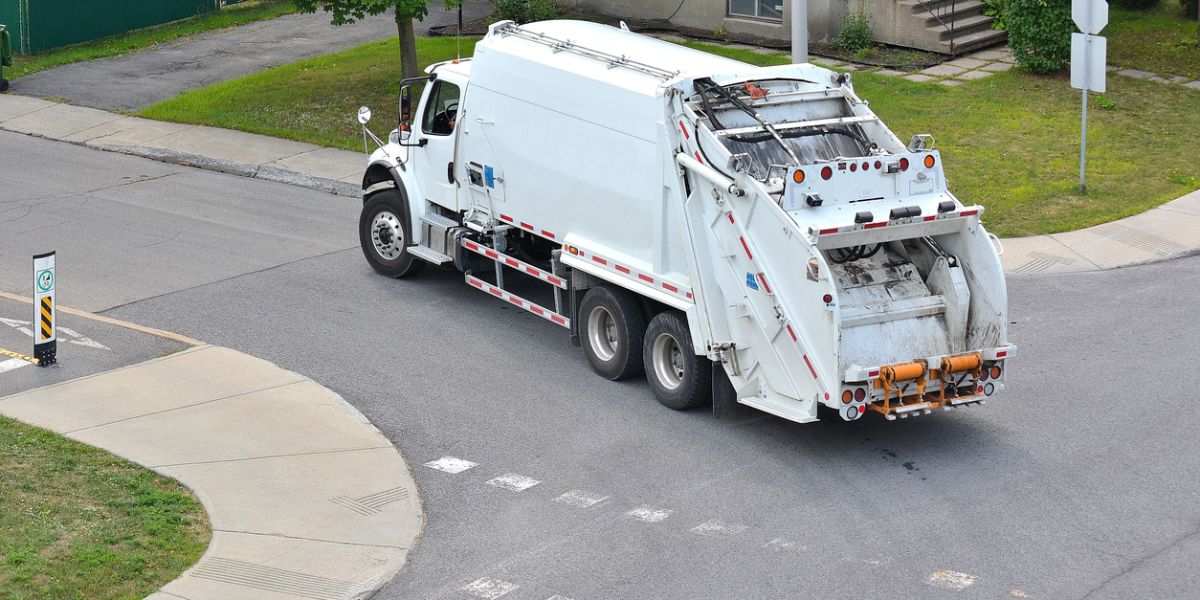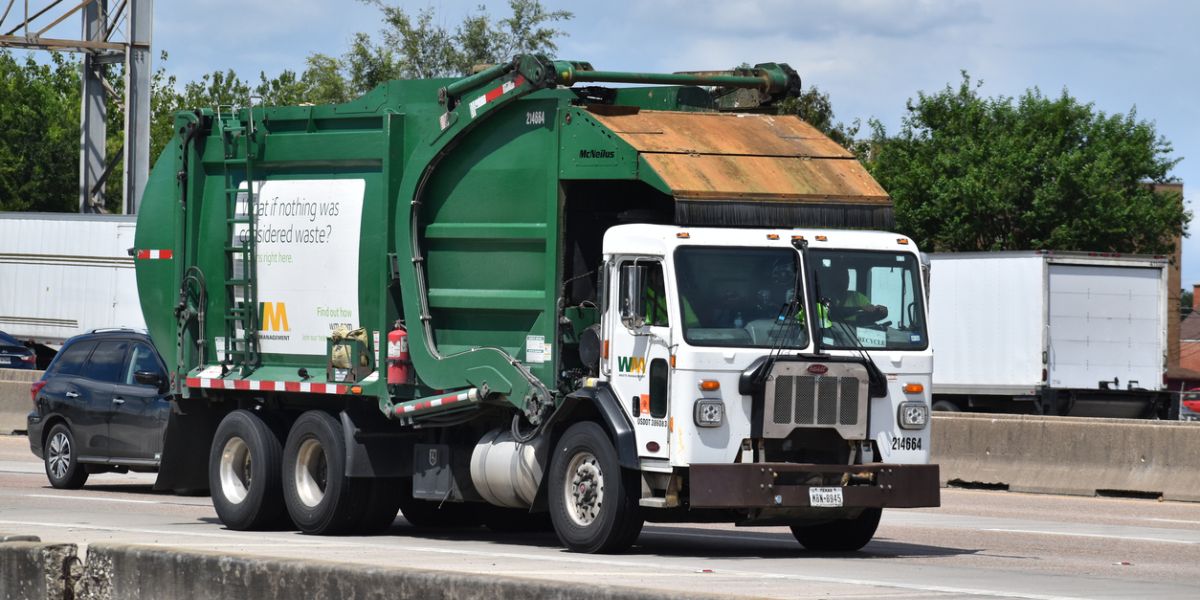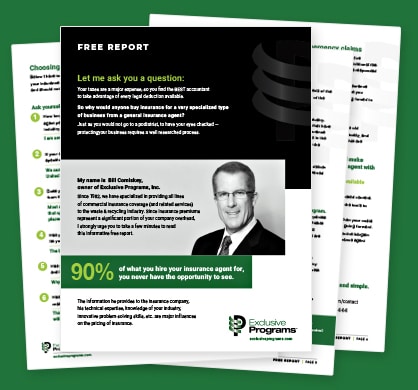Picture this: It’s a scorching summer day in Florida, and your waste management company is operating at full tilt. Your garbage trucks are out on their routes, and your recycling facility is humming with activity. But suddenly, disaster strikes and your sanitation equipment and facilities are not spared. As you survey the wreckage, it becomes painfully clear that you’re facing a monumental setback, both financially and operationally. Why? Because you didn’t have the crucial safety net of property insurance in place—property coverage for sanitation businesses. In this blog post, we will explore the importance of insuring sanitation equipment in Florida and how Exclusive Programs can provide specialized solutions to protect your valuable assets.
Property Coverage for Sanitation Businesses

The Sunshine State is known for its unique challenges, including extreme weather events like hurricanes and tropical storms. These natural disasters can wreak havoc on sanitation equipment, leading to costly repairs or replacements.
To mitigate these risks, it’s essential to have comprehensive insurance coverage for your sanitation equipment in Florida. This coverage should encompass damage caused by hurricanes, flooding, theft, and accidents. By insuring your equipment, you protect your business from unforeseen financial burdens and ensure that operations can continue smoothly even in the face of adversity.
Why is Property Coverage Necessary?
Property coverage for sanitation businesses offers protection for your facilities, machinery, and equipment, ensuring that your operations can continue smoothly even in the face of unexpected challenges.
- Equipment Protection: Waste collection companies rely on specialized machinery and equipment, from garbage trucks to sorting machines. Property insurance safeguards these assets against damage from accidents, natural disasters, or theft, reducing the financial burden of repair or replacement.
- Facility Coverage: Recycling facilities and waste management centers often operate in large industrial spaces. Property coverage can help repair or rebuild these facilities in case of structural damage, ensuring minimal disruption to your operations.
- Liability Protection: Property insurance can also offer liability coverage, protecting your business from potential lawsuits arising from accidents on your property.
Insuring Sanitation Equipment in Florida
Florida’s unique climate and environmental conditions present specific challenges for sanitation businesses. Ensuring your sanitation equipment in Florida requires a tailored approach to address these specific risks. Here are some key considerations:
- Hurricanes and Storms: Florida is prone to hurricanes and severe storms, which can cause extensive damage to sanitation equipment and facilities. When selecting insurance coverage, it’s crucial to include protection against these natural disasters.
- Flood Insurance: Due to Florida’s low-lying geography, flooding is a significant concern. Make sure your property insurance includes flood coverage to safeguard your assets from water-related damage.
- Equipment Value: Sanitation equipment can be a significant investment. Ensure that your insurance policy accurately reflects the current value of your machinery and equipment to avoid underinsurance in case of a claim.
- Comprehensive Coverage: Consider comprehensive coverage that includes both property and liability insurance. This ensures that your sanitation business is protected from a wide range of risks.
Exclusive Programs WasteGuard: Your Sanitation Insurance Solution
Exclusive Programs understands the unique challenges faced by sanitation businesses in Florida. Our innovative programs and services, such as WasteGuard and WasteComp, are designed to streamline waste management operations, improve efficiency, and mitigate risks.
WasteGuard, specifically, goes beyond the ordinary by offering comprehensive property and equipment coverage to safeguard every aspect of your operation. Whether it’s protecting your building and its contents, ensuring the safety of your computer systems, covering business income losses, or securing your equipment and machinery, WasteGuard has you covered.
What’s more, it even provides protection against unexpected events like boiler and machinery breakdowns, floods, and windstorms. With WasteGuard, you can have peace of mind knowing that your valuable assets are shielded from the unexpected. We take pride in enabling your waste and recycling management business to thrive and flourish.
With our expertise, we can tailor property coverage for your sanitation facilities and equipment, ensuring comprehensive protection against all potential risks.
Complete Coverage with Exclusive Programs
Protecting your sanitation equipment and facilities is essential for business continuity and success. Property coverage for sanitation businesses in Florida offers the security and peace of mind you need to focus on your core operations. Exclusive Programs is your trusted partner in providing specialized insurance solutions tailored to your specific needs. To learn more about insuring sanitation equipment in Florida, contact us today and explore our comprehensive programs. Ensure the safety, efficiency, and success of your waste management business with Exclusive Programs by your side.









